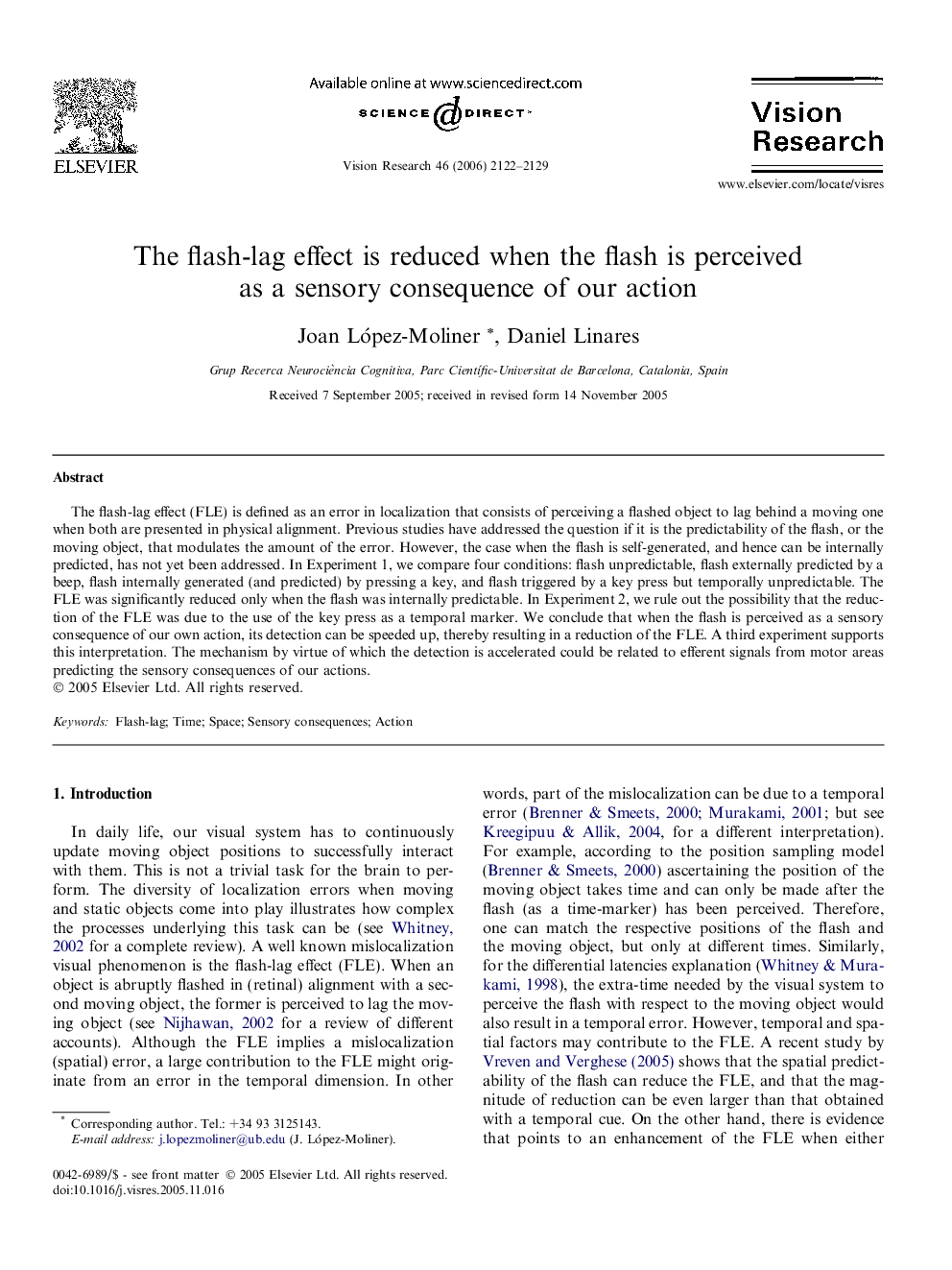| کد مقاله | کد نشریه | سال انتشار | مقاله انگلیسی | نسخه تمام متن |
|---|---|---|---|---|
| 4035781 | 1263548 | 2006 | 8 صفحه PDF | دانلود رایگان |

The flash-lag effect (FLE) is defined as an error in localization that consists of perceiving a flashed object to lag behind a moving one when both are presented in physical alignment. Previous studies have addressed the question if it is the predictability of the flash, or the moving object, that modulates the amount of the error. However, the case when the flash is self-generated, and hence can be internally predicted, has not yet been addressed. In Experiment 1, we compare four conditions: flash unpredictable, flash externally predicted by a beep, flash internally generated (and predicted) by pressing a key, and flash triggered by a key press but temporally unpredictable. The FLE was significantly reduced only when the flash was internally predictable. In Experiment 2, we rule out the possibility that the reduction of the FLE was due to the use of the key press as a temporal marker. We conclude that when the flash is perceived as a sensory consequence of our own action, its detection can be speeded up, thereby resulting in a reduction of the FLE. A third experiment supports this interpretation. The mechanism by virtue of which the detection is accelerated could be related to efferent signals from motor areas predicting the sensory consequences of our actions.
Journal: Vision Research - Volume 46, Issue 13, June 2006, Pages 2122–2129